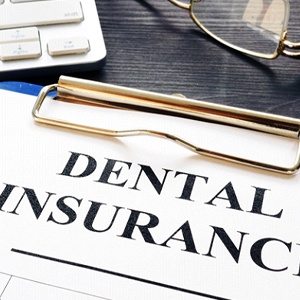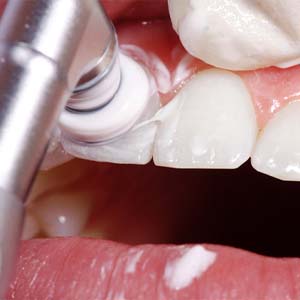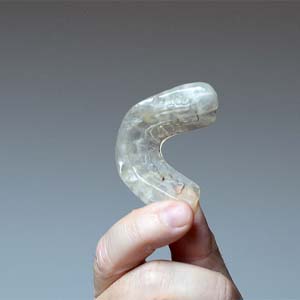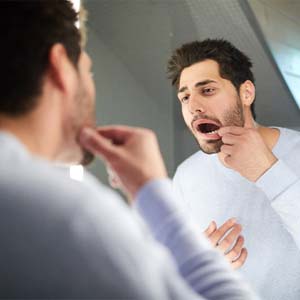
Emergency Dentist — Fayetteville, NC
We Provide Patients with Fast, Effective Relief

Has the toothache you’ve been neglecting become too painful to ignore? Did an accidental elbow catch you off guard and knock out a tooth? Dr. Angela C. Ruff can help restore your smile with a comprehensive array of services and the latest technology. From first-aid tips over the phone to successful treatment at our office, we are here to help you and your loved ones when you need it most. If you experience a dental emergency in Fayetteville, don’t hesitate to contact us today!
Why Choose Ascot Aesthetic Implants & Dentistry for Emergency Dental Care?
- Same-Day Appointments Available
- Dentist Highly Trained in Various Specialties
- Multiple Sedation Options In-Office
What to Do in a Dental Emergency

- Same-day appointment: When you get in touch with our practice, you’ll be connected with a knowledgeable team member who will get you scheduled for an appointment, ideally the same day that you call. At the very least, you’ll get first-aid advice on how to manage your dental emergency until you arrive.
- Emergency exam: When you get to our practice, Dr. Ruff will examine your mouth, then determine if digital X-rays are needed to locate the source of your emergency. She’ll work quickly to get you out of pain so you can feel more comfortable during your visit.
- Review findings: Once the exam is complete, Dr. Ruff will provide a detailed assessment of your mouth and explain her recommendations for treatment. She’s happy to break down the costs and estimated length of time it will take to complete your emergency care.
- Get the care you need: Our team members will do everything they can to get your oral health back to a healthy state, whether it’s through dental fillings and crowns, root canal therapy, tooth extractions, or another service entirely.
The Most Common Dental Emergencies
The term “dental emergency” typically refers to two categories. The first, are long-term infections or toothaches from poor oral hygiene and neglect. The other, are sudden, physical injuries that necessitate immediate attention. Our office is more than equipped to handle both, so don’t wait to call to get your urgent dental issue treated. With that said, we have listed some advice on handling the most common dental emergencies below.
Understanding the Cost of Emergency Dentistry

When a dental emergency strikes, the last thing you need to be worried about is how you’re going to pay the bill. Since every situation differs, various factors affect the cost of emergency dentistry in Fayetteville. We strive to keep our services affordable, so nothing stands in your way of getting the care you need. We offer several payment options to find the solutions that fit your budget.
Every Dental Emergency is Different

There’s not a flat rate for emergency dentistry because every situation is unique. We wouldn’t want you paying for anything you don’t need or missing out on a treatment because it’s not included in a pre-determined plan. As a result, multiple factors affect the amount you will pay, such as the treatment required. Although every case differs, common services include:
- Dental crowns
- Root canal therapy
- TMJ therapy
- Tooth extractions
- Periodontal therapy
- And more
After examining your mouth and learning more about your situation, your emergency dentist in Fayetteville will create a personalized treatment strategy. We will provide you with an estimate and explain the fees associated with your plan. A member of our team will also review your payment options, so you’ll know exactly what you’ll have to pay before committing to anything.
Does Dental Insurance Cover Dental Emergencies?

Most dental insurance plans offer coverage for emergency dentistry. Although every plan is different, you can use your coverage to offset the costs of certain steps in your plan, like the consultation, X-rays, or restorations. We know dental insurance is confusing, but we are here to help. We will work on your behalf with your insurance to maximize your benefits to lower the amount you need to pay.
Other Options for Making Dental Emergencies Affordable

Besides using your dental insurance, we offer other payment methods, including:
- Traditional Payments: We accept cash, checks, and credit cards.
- Third-Party Financing: After your credit approval, you can pay for your treatment using monthly installments through a third-party financing company.
If you have any questions about your dental insurance or your payment options, contact our office today to speak with a member of our team.
Taking Care of Your Smile Can Save You Money

You can’t always prevent a dental emergency, but you can take several steps to lessen your risk of one. Many issues requiring immediate attention could be avoided because they are caused by underlying dental issues, like a cavity. Committing to your oral hygiene at home and visiting your dentist twice a year can ensure there aren’t any ticking time bombs in your mouth. Keeping your teeth and gums healthy will lessen the likeliness of needing urgent dental care.
You can also safeguard your smile from trauma by wearing an athletic mouthguard if you play sports. You’ll reduce your risk of a broken or knocked-out tooth significantly. If you have a habit of grinding or clenching your teeth, ask your dentist for a nightguard to prevent damaging your enamel.
Keys to Preventing Dental Emergencies

When it comes to protecting your smile, prevention is key. Although it may take consistent effort on your part to ensure the health of your teeth and gums, when you’re able to avoid unexpected visits to your emergency dentist, it’ll be validation that all of your work was worthwhile. Not to mention, your wallet will thank you! Below, we’ve outlined some important keys to avoid serious oral health issues that could land you in your emergency dentist’s treatment chair.
Schedule Bi-Annual Checkups & Cleanings

Visiting your dentist every six months for a checkup and cleaning can help you prevent dental emergencies in Fayetteville. These routine appointments involve a thorough examination of your teeth and gums, X-rays, and a professional cleaning to remove all plaque and tartar from the surface of your smile. The goal of checkups and cleanings is to spot and treat the small oral issues before they have a chance to wreak havoc and cause permanent damage to your grin.
Maintain Good At-Home Oral Hygiene

Without a good at-home oral hygiene routine, you could face the threat of worsening oral health issues that lead to an unexpected visit to your emergency dental office in Fayetteville. By brushing twice each day for two minutes using a fluoride toothpaste, flossing daily, and rinsing with antimicrobial mouthwash, you’ll be able to keep issues at-bay.
Eat a Balanced Diet

You may not have considered it, but what you eat can impact the health of your teeth and gums. Harmful oral bacteria that are known to cause common problems like gum disease and cavities love feeding off of sugars and carbohydrates found in food. By balancing out your diet to make sure that your intake of these two ingredients isn’t too much, you can also reduce your risk of experiencing oral issues.
Wear a Protective Mouthguard

If you participate in contact sports or clench and grind your teeth as you sleep at night, then investing in a protective sportsguard or nightguard can go a long way in preventing you from experiencing a dental emergency.
Don’t Use Your Teeth as Tools

It may be tempting to use your teeth to open up packages or rip the price tag off of a piece of clothing, but this will put you at-risk for damaging a tooth. Instead, take the extra time to grab the nearest pair of scissors or a knife—you won’t regret it!
Dental Emergency FAQ’s

Are you still worried about what you should do if an urgent dental situation pops up? As an emergency dentist in Fayetteville, Dr. Ruff is well-equipped to handle these problems. When you call us with a dental emergency, our team will do our best to schedule an appointment for you as soon as we can. In the meantime, it may help to read through this list of some frequently asked questions regarding emergency dentistry.
How Can I Be Prepared for Future Dental Emergencies?
To ease your pain and minimize your risk of damage in future emergencies, you can create a dental emergency kit. In fact, we recommend making a few and placing them in easily accessible areas, like your car, your bathroom, or even your desk at work. Include the following items:
- Our contact information
- Latex-free gloves
- Ibuprofen
- Gauze pads
- Saline solution
- Orajel
- Small container with a secure lid
Should I Go to the Emergency Room?
In most cases, no. Emergency rooms are often more expensive than dental offices. Additionally, ER doctors usually aren’t qualified to perform specific dentistry treatments. At best, they may write you a prescription for painkillers and then refer you to a dentist anyway. Heading straight to our office can save you time and money.
If, however, you’re experiencing an emergency that might be life-threatening, go to your local ER instead. These emergencies include a broken or fractured jaw, deep facial cuts, or swelling that makes it difficult to breathe or swallow. Once you get your immediate problem treated, we’ll be here to take care of any dental work you may need afterward.
Will my toothache go away on its own?
No one has the time for an unplanned trip to their dentist, but you don’t want to ignore a toothache. For most patients, the problem will not resolve on its own because the underlying cause of the discomfort hasn’t been treated. Not only is it unlikely the pain will go away, but you could end up losing your tooth. It’s best to contact your emergency dentist in Fayetteville right away before it turns into something more serious. Your dentist will find the source of your pain to intervene to save your tooth.
How can I sleep with dental pain?
Nothing is worse than an agonizing toothache. It can be almost impossible to sleep through the throbbing sensations. Thankfully, you can do several things to stay comfortable to get the rest you need, like sleeping with your head elevated. This prevents the blood from pooling in your head to avoid the pain intensifying. You can also take an over-the-counter pain reliever before heading to bed. You should skip acidic, hard, or cold foods before bedtime to prevent sensitivity. You may find applying a cold compress to the outside of your face temporarily numbs the area, too.
Can a chipped tooth heal?
Although your enamel is the hardest substance in your body, it is not capable of regenerating. As a result, once it’s lost, it is gone for good. Even a small chip compromises the hard protective layer of your tooth, which means you have a dental emergency in Fayetteville. Even if you’re not in any pain, a chipped tooth must be treated to protect it from cavity-causing bacteria, infection, and additional damage. Your dentist will examine your tooth to create a personalized treatment plan, like dental bonding or a crown. No matter the treatment, it will be restored to its previous condition, so you can continue to smile confidently.
Can I use superglue to fix my dentures?
If you’ve experienced significant tooth loss, your dentures are invaluable to your confidence, quality of life, and general wellbeing. If your denture breaks, you can’t go without your teeth. Although you might have good intentions by trying to repair your denture can cause additional damage that may not be reversible. Superglue might provide a quick fix, but it’s best to leave the mending to the professionals. Not only is superglue not intended for dentures, but it may have harmful chemicals that could be toxic or cause an allergic reaction. It may even change the way your food tastes. While it may hold the pieces in place, superglue is no match for your mouth’s moist environment. As a result, the bond won’t last for long. You can avoid the hassle and restore your smile with the help of your emergency dentist. If possible, they’ll repair your denture; however, a replacement may be necessary. We’ll explain your options, so you won’t need to go without your teeth for too long.
Preventive Dentistry Tooth Extractions Restorative Dentistry Dental Implants Cosmetic Dentistry Advanced Services & Technology Sleep Apnea View Our Services